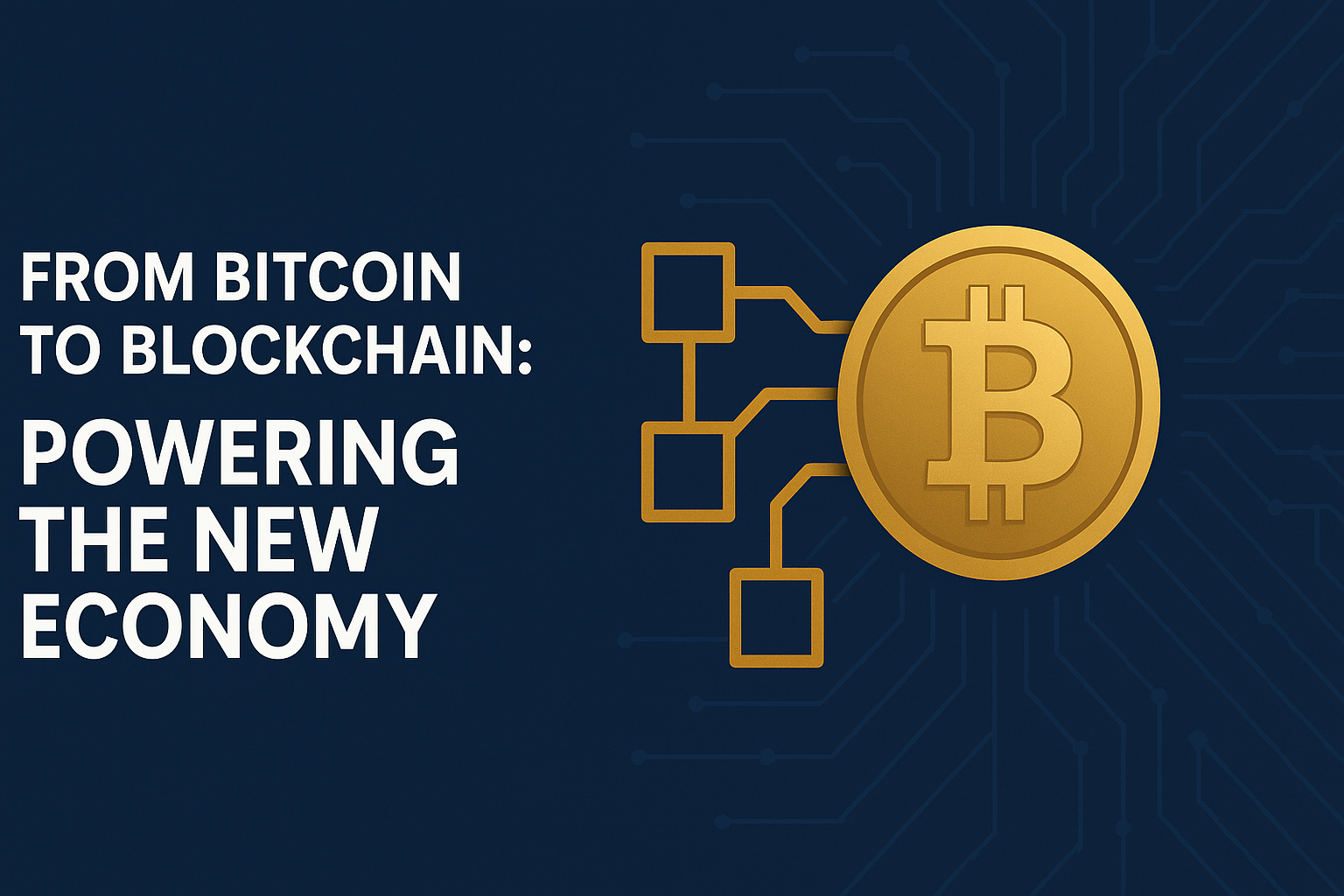
The rise of Bitcoin was only the beginning. Behind the headlines and price charts lies a deeper revolution—blockchain technology, the digital backbone reshaping industries and economies. From decentralized finance to transparent supply chains, blockchain is more than a buzzword; it’s the engine driving the future of the global economy.
🚀 The Birth of Bitcoin: A Digital Currency Breakthrough
In 2009, Bitcoin emerged as the first decentralized digital currency. Created by the mysterious Satoshi Nakamoto, it offered an alternative to traditional banking by enabling peer-to-peer transactions without intermediaries.
Key features of Bitcoin:
Limited supply (21 million coins)
Transparent and tamper-proof ledger (blockchain)
Global and borderless usage
High security and immutability
Bitcoin paved the way for a broader exploration of how blockchain could revolutionize more than just money.
🔗 What Is Blockchain, and Why Does It Matter?
At its core, blockchain is a distributed ledger that records transactions across a network of computers. Every block is linked (or chained) to the previous one, ensuring data can’t be altered retroactively.
Benefits of blockchain:
✅ Transparency – Every transaction is visible and verifiable
✅ Security – Tamper-resistant with cryptographic protection
✅ Efficiency – Reduces the need for intermediaries
✅ Trust – Decentralized control means no single point of failure
This trustless system is powering innovation across finance, healthcare, logistics, real estate, and even voting systems.
💼 Real-World Applications: Beyond Bitcoin
Blockchain isn’t just about cryptocurrencies. It’s powering a new economy based on decentralization and automation:
1. Decentralized Finance (DeFi):
Lending, borrowing, and earning interest without banks using platforms like Aave, MakerDAO, and Uniswap.
2. Smart Contracts:
Automated, self-executing agreements that reduce fraud and increase efficiency (popular on Ethereum).
3. NFTs (Non-Fungible Tokens):
Digital ownership for art, music, and collectibles.
4. Supply Chain Transparency:
Track products from origin to consumer, reducing fraud and increasing trust.
5. Identity & Data Ownership:
Take back control of your personal information with decentralized identity systems.
🌍 Powering the Future of the Global Economy
As blockchain matures, it is creating a foundation for a more inclusive, transparent, and efficient global economy. With blockchain:
Emerging economies gain financial access
Startups can raise capital via tokenization
Individuals can secure and monetize their digital assets
The future is decentralized, and blockchain is the infrastructure that makes it possible.
Leave a Reply